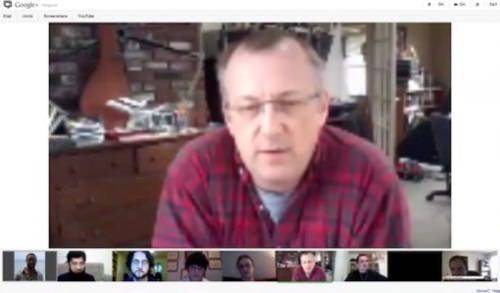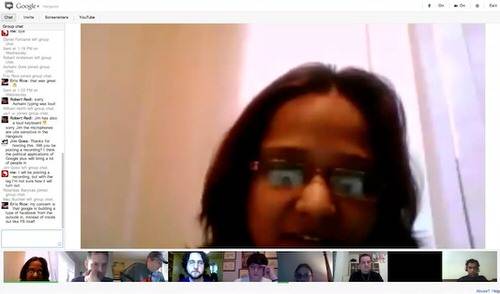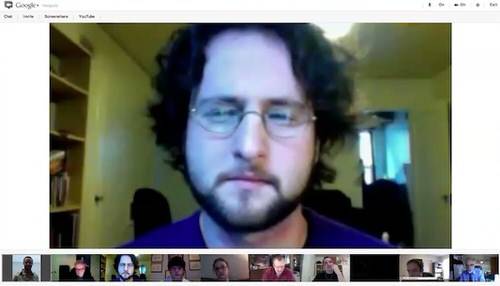I just hosted the first ReadWriteWeb Google+ Hangout, and it was a blast. Vic Gundotra stopped by to say hello, and then the guests and I got to know each other a little bit by talking about how we’re liking Google+ and Google’s new direction so far. I’ve got my issues with Google+, and I’ve published some rough words about it recently, so I knew a RWW Hangout would attract some lively conversation. I didn’t know how right I was.

Unfortunately, our do-it-ourselves recording didn’t work out, or I’d post the whole thing. Maybe our new friend Vic can talk to somebody and get us On Air capabilities, so we can record (winky face). I promise we’ll use it. I’d love to do this again. I’ll do my best to recap how it went and what we learned.

Robert Anderson started us off with a great question about search. Google+ has changed the way search works by incorporating personalized results, and, as Robert pointed out, Google used other personal signals before all this, such as location and browsing history. How is all this affecting the Web?
I think there was consensus in the Hangout that global and personalized search are both important for different reasons. As Ashwini Gore and others said, we don’t always want our friends’ daily activities popping up in our searches when we’re trying to get work done.

I mentioned that I’m often searching for news articles for work, and between personalized search and Google’s recent “freshness” tweaks to the search algorithm, personalized search makes it hard to find old or obscure pages.
But Robert Redl shared the way he uses the Search, plus Your World features, and he had some ingenious suggestions. He uses private Google+ posts, shared only with himself, as little notes or reminders, which he can now easily find when he searches Google. The search features that put Google+ ahead of other social networks have caused an uproar in the blogosphere. But as Robert demonstrated, there are ways in which Search+ is a huge benefit to Google+ users.

Personally, I don’t use Google+ for much more than submitting articles to the Googleverse, so Search+ is not that useful to me. My social graph lives elsewhere. But that’s okay, because we can turn it off. Many users won’t though, so social search will change what they find through Google.
We talked about how Google+ affects search engine placement, and Daniel Fontaine said it has helped his business. I think that’s great. Search, plus Your World has changed SEO, but it has made it into something that users can control.
For the 19 of us who hung out, the ways we use Google+ as a “social network” varied. Some love it, some hate it, others will wait and see how it goes. People debate whether Google+ “counts” as a social network, or whether it’s an “identity service,” or whatever. One thing is for sure: Hangouts are AWESOME!

“Social” is surely a word we use too much on the Web. What could be more social than a bunch of people hanging out face to face? There were no “+1s” or “likes” going on in there, just words and body language. I don’t have to like the Google+ interface, or the way its comment threads work, or even the way it affects search results to love what just happened.
We may argue about Google+ user statistics, whether it has umpty million users, whether they’re “active” or not. We may argue about whether its new, overarching privacy policy is evil and terrifying or easier to understand and not that different. But I’m getting bored of that, aren’t you? If you hate Google, don’t use it. But I really recommend trying a Hangout. You’ll smile a lot.
We should hang out sometime!

















